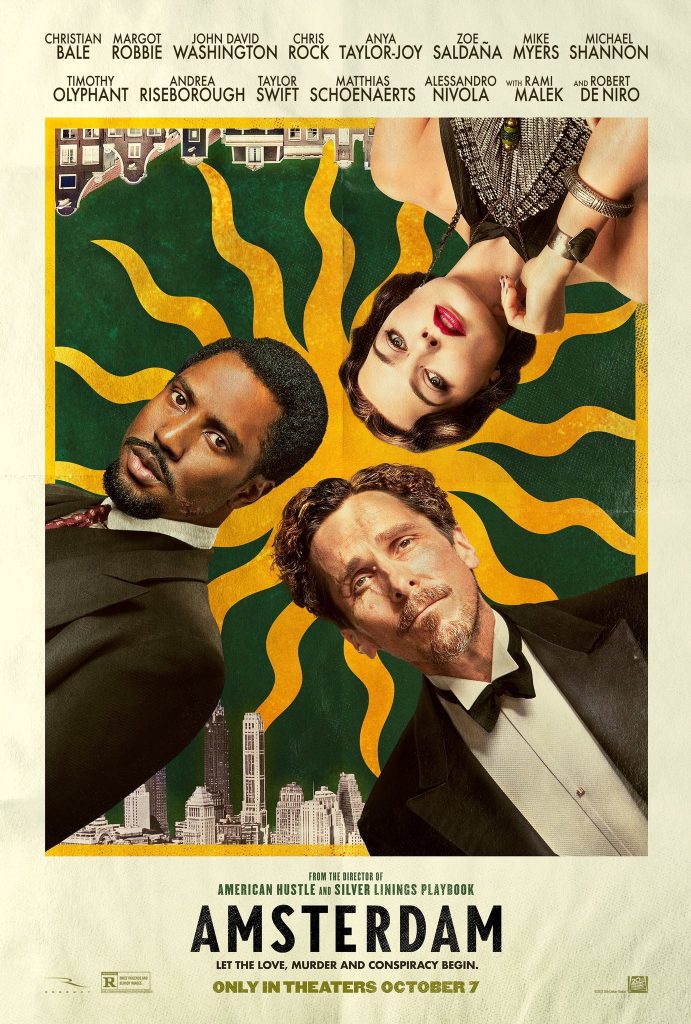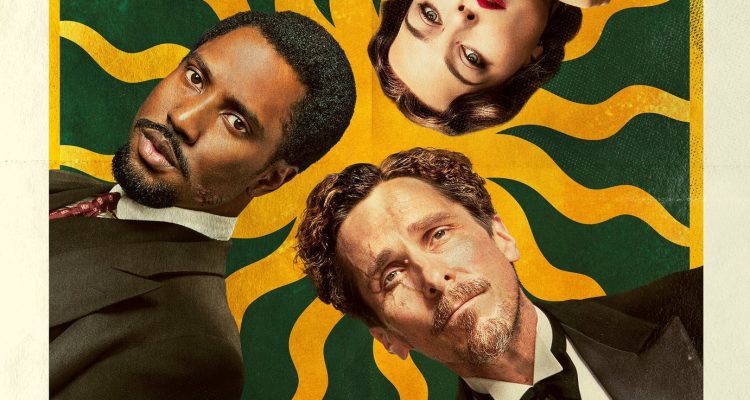From 20th Century Studios and New Regency, “Amsterdam” is billed as an original romantic crime epic about three close friends who find themselves at the center of one of the most shocking secret plots in American history. If that sounds a bit like a hodgepodge of a film, you’ll find the final product even more confusing and convoluted, somehow managing to be frantic and meandering in a rare misfire from writer and director David O. Russell.
“Amsterdam” may have a trio of stars at its helm, but the standout and sole reward for sitting through this lackluster period piece is Christian Bale. The former child-actor and virtuoso won his first Oscar under O. Russell’s direction for his riveting performance as real-life boxer Dickie Eklund in “The Fighter” (2010).
The pair collaborated three years later on “American Hustle” (2013), merging O. Russell’s “The Fighter” cast with his acclaimed follow up, “Silver Linings Playbook” (2012). That project, also loosely based on true events, saw its four principal cast members nominated in all four Oscar acting categories alongside O. Russell’s nominations.
Despite a reputation for his intense on set tactics to elicit his desired performances, O. Russell has produced some of the most acclaimed films of the last twelve years. There’s no doubt that the consistent Oscar attention has gifted O. Russell with near Tarantino-status, just seeing the sheer number of film stars in “Amsterdam.”
Newcomers for O. Russell’s latest film include two-time Oscar nominee Margot Robbie, John David Washington, Alessandro Nivola, Andrea Riseborough, Anya Taylor-Joy, Chris Rock, Matthias Schoenaerts, Michael Shannon, Mike Myers, Taylor Swift, Zoe Saldaña, and Oscar-winner Rami Malek.
O. Russell is a five-time Oscar nominee himself, and arguably should’ve brought home a statue on one of his prior efforts. However, it’s unlikely that “Amsterdam” will earn any nominations or similar box office numbers compared to his previous awards contenders.
Amsterdam struggles to find its identity amid a myriad of problems related to its script, including tone, pacing, and just clarity of narrative. The film also struggles to shoehorn Taylor Swift into a role, but more surprisingly than Swift’s stiff delivery is the flat performance from rising star John David Washington. Opposite Bale, Washington seems out of place and oftentimes like he’s reading lines off a page stationed somewhere within eye-shot.
O. Russell’s prior films have been centered in a dramatic reality where elevated characters juggle real-life stakes, consequences, and complex, human emotions. In “Amsterdam,” it feels like O. Russell has landed in the Coen Brothers “Hail, Caesar!” territory, a tone that doesn’t work for the filmmaker’s style and undermines any drama the story hopes to build regarding our protagonists and their journeys.
In a non-spoiler synopsis, war veterans and best friends (Bale and Washington) are falsely suspected of murder that they didn’t commit. While trying to uncover the truth behind this rather life-altering mix up, the pair (along with cohort Margo Robbie) land on an even larger and more sinister plot to assassinate an American politician.
The film’s timeline runs from 1918 to 1933, featuring numerous confusing and irrelevant sequences that should have been tightened or most often excised entirely. The film’s runtime is certainly excessive to say the least, coming in at two hours and fourteen minutes.
The film is shot by Emmanuel Lubezki, the three-time Oscar winning Cinematographer responsible for “Gravity,” “Birdman,” and “The Revenant.” Out of every creative involved, Lubezki is the most likely to earn a nomination for his work on the film (thanks to his prowess within the cinematography community, not any groundbreaking visuals in his collaboration with O. Russell).
While 20th Century Studios had high hopes for this A-list outing, it seems that the film’s box office reflects the critical consensus that O. Russell has had his first misfire since his career renaissance starting with “The Fighter.”



